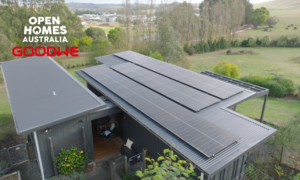The solar industry is in shock after receiving news late last week of an Australian home solar power pioneer going into receivership – another casualty in what is becoming an increasingly bloody battle for Australia’s clean energy future.
Ferrier Hodgson announced the firm was appointed Receivers and Managers of Solar Shop Australia Pty Ltd (and associated subsidiaries) on 7 September 2011, “pursuant to the provisions of a registered debenture charge in favour of Westpac Banking Corporation”.
Ferrier Hodgson said Solar Shop would continue to trade “business as usual” in the short term while they endeavour to find a purchaser for the business.
The Australian Solar Energy Society (AuSES) and other associations have been raising the alarm for months that the Australian solar power industry is in crisis, particularly in New South Wales.
“It is disappointing that Governments have failed to provide certainty for our industry,” reads a statement from AuSES. “Now is not the time to slash State and Territory feed-in tariffs or to further cut incentives such as the Renewable Energy Target.”
AuSES says with 3,700 solar jobs already lost in New South Wales alone and job losses mounting in Western Australia, Victoria, South Australia and the ACT, it is time for the federal government to act.
It hasn’t been lost on the industry that when BlueScope recently retrenched 1,000 workers, the Federal Government raced in to provide a $100 million advance – but with thousands of jobs already lost in the solar industry, the Government’s silence remains deafening.
AuSES says the industry isn’t looking for a handout, just appropriate legislation in all states to ensure a fair price is paid to all solar power system owners for the surplus electricity they generate.
While feed in tariffs have continually been demonised by some corners for pushing up electricity costs dramatically, this has been repeatedly proven to be a myth. Evidence suggests feed in tariffs can reduce electricity demand, lowering electricity prices and defer infrastructure spending.
According to a report appearing on The Age, a draft submission to a New South Wales government review of FiTs by Beyond Zero Emissions estimates wholesale electricity prices could have been far lower in 2009 and 2010 had there been a sufficient number of solar panels installed in Brisbane, Sydney, Melbourne and Adelaide. The cost reduction would have been achieved through what is termed the ”merit order effect”.
New South Wales is currently in limbo on the issue of feed in tariffs; pending a review by IPART. South Australia’s incentive will be slashed by half for new applications after September, which will result in what is effectively a 1:1 feed in tariff. Earlier this month, the Victorian government announced it would also reduce its solar feed in tariff rate and phase out the program. The ACT closed its program in July 2011, however, it’s understood households connecting solar power systems will be covered under a 1:1 arrangement. Western Australia’s government closed its scheme in August, but Horizon Power and Synergy are continuing to purchase surplus electricity, albeit at a reduced rate.
After the end of this month, new Queensland solar power system owners will benefit from what will be Australia’s most generous active program accepting new applications. The Queensland incentive pays 44c per kilowatt hour for surplus electricity generated.
Even with the slashing of incentives in some states, home solar power will always be a good way to buffer against spiraling electricity costs, but a fair and uniform approach to the issue of payment for surplus electricity will ensure a sustainable industry; one that plays a key role in Australia’s clean energy future.












































